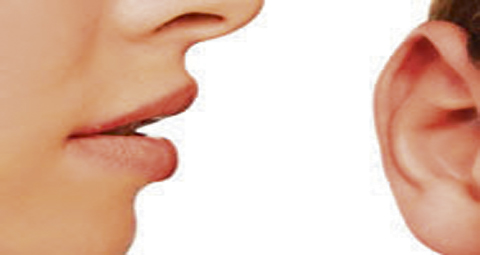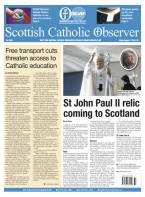July 20 | ![]() 0 COMMENTS
0 COMMENTS ![]() print
print

Attempting to decipher the powerful voices that are within us
— Fr Ronald Rolhesier
It is not easy to discern the voice of truth among the many voices that beckon us. Indeed it is difficult even to discern when we are genuinely sincere: Who am I really? What is in my genuine best-interest? Among the many voices I hear which voice will ultimately bring me life? Which is the voice of God in my life?
Countless voices assail us constantly from without: billboards, television, newspapers, magazines, the internet, ideologies, religion, the arts, pop culture, fashion, hype, the lure of celebrity, among others. But it is usually not difficult for us to recognise that we are in fact being assailed by these voices for they make little pretense. Each has an angle: they want our money, our vote, our support, our sympathy, our allegiance, our attention, our participation, our admiration, or something from us. Subtlety is not their virtue and we are generally not so naïve as to think they have our best interests at heart; though in some cases, like religion, the arts and fashion, their best expressions are for our benefit. But we are not so easily taken in by outside voices.
Where we more naïve is with voices that beckon and make truth claims from within. Because these voices are inside us it is natural to believe that they have our best interests at heart, that they speak for us, that they are the voice of truth.
What are these voices that assail us from within, just as do the many voices from without? Here are a few salient examples:
—The voice of personal grandiosity, ego, self-interest, and laziness. We are not altruistic by nature. Thanks to our natural instincts, we are come into this world instinctually prideful, self-centered, narcissistic, and concerned first of all with our own well-being, pleasure, and comfort. As we grow into maturity we learn that the voice of self-interest is not exactly the voice that calls us to life; but, this side of eternity, that voice never dies and remains inside us always as a voice that is ready to undermine all other voices.
—The voice of wound and rage. Nobody comes to adulthood whole. It is not a question of whether we are wounded but only a question of the what and the where of our wounds. And the voice of wound is speaking always, subtly and not so subtly, inside us, calling us to feel distrustful, slighted, offended, angry, and vengeful. Nobody is immune. This voice is forever telling us that paranoia, not metanoia, is what leads us to life.
—The voice of emotional and psychological depression. Depression easily disguises itself as depth, as altruism, as holiness, and hence it can fool us by having us believe that this heaviness of spirit is life-giving when, in fact, it is draining our bodies and souls of oxygen and life. The voice of depression is very often confused with the voice of religion because it appears to honour asceticism, other-worldliness, and the cross when, in fact, it does not.
—The voice of sentimentality and piety. Sentimentality and piety are very easily mistaken for genuine empathy and genuine devotion. But there is a not-so-subtle difference: In genuine empathy and genuine devotion, the tears we cry are for others, in sentimentality and piety the tears we shed are for ourselves.
—The voice of obsession, of inner ‘angels’ and ‘demons.’ There is a long-standing argument as to what ultimately most influences our behaviour: nature or nurture? Genetics or environment? A number of thinkers, including James Hillman, would suggest that what most influences our behaviour is neither nature nor nurture, but certain ‘daimons’ within, namely, various ‘angels’ and ‘demons’ inside that assail us, trigger obsessions, and rob us of freedom. Anyone who has ever fallen helplessly and hopelessly in love will recognise exactly what a ‘demon’ or ‘angel’ inside can do. There are few more paralysing forces in our lives and there are few voices that can so deeply make us believe that a certain person—and only this person —can bring us life. If you are a romantic, this voice will be both the biggest source of energy and the biggest source of grief in your life; and, as bitter experience has shown, it is not always the voice of life.
—The voice of archetype, genetics, ethnicity, and gender. Blood is thicker than water and it is also a very powerful voice inside us that is never fully silent. We do not come into this world as unused photographic paper onto which nothing has yet been imprinted. Rather we enter this life with a powerful DNA, inside both our bodies and souls, within which many things are already indelibly stamped. Our DNA, physical and psychological, remains always a powerful voice inside us and, like the voice of personal grandiosity, it does not always have our ultimate best interests at heart.
There are no easy answers apposite to dealing with these voices inside us, but, to quote James Hillman, a symptom suffers most when it does not know where it belongs.
—Fr Ronald Rolheiser is a Catholic priest and member of the Missionary Oblates of Mary Immaculate, is president of the Oblate School of Theology in San Antonio, Texas











